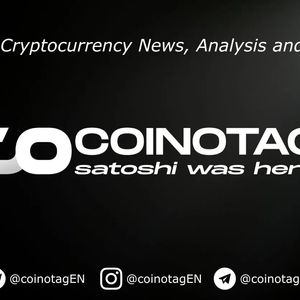Dunamu, the operator of the South Korean crypto exchange Upbit, will have to overcome five legal hurdles if it is to complete its much-vaunted merger with the tech giant Naver , according to a new report. Naver is the country’s biggest and most prominent internet firm, South Korea’s answer to Google. Upbit, meanwhile, has cornered some 72% of the domestic crypto market . Dunamu Naver Merger: 5 Legal Obstacles A Dunamu-Naver merger could create a crypto-tech behemoth on a scale previously unseen in the East Asian market. However, the South Korean newspaper Hanguk Kyungjae identified several issues that stand in the way of the alliance, despite the merger talk leaving the tech and crypto sectors “abuzz.” It called these legal hurdles “significant,” and added that “policy uncertainties” could also undermine the bid. Trading volumes on the South Korean crypto exchange Upbit in the past week. (Source: CoinGecko) Hurdle 1: Tradfi Regulations In late 2017, South Korean regulators imposed a rule effectively barring traditional financial companies from doing crypto-related business. Although they never enshrined this in national law, financial industry guidelines still exclude the possibility of banks and other lenders providing crypto-related services. Naver wants to merge its Naver Financial unit with Dunamu. The former is classified as an electronic financial service provider under the terms of the Electronic Financial Transactions Act. Regulators would, in theory, need to modify their guidelines for the merger to go ahead as currently proposed. The Dunamu Chairman Song Chi-hyung speaking at Seoul National University in 2021. (Source: Seoul National University/Seoul Kyungjae/YouTube/Screenshot) Hurdle 2: Stablecoin Legislation Uncertainty Domestic market observers think that one of the key goals of a Naver-Dunamu merger centers on the issuance of won-denominated stablecoins and the expansion of the payment ecosystem. If Naver’s existing Naver Pay platform could make use of a KRW-pegged coin, the firm could expand its presence in the payments market. However, politicians and regulators remain divided on several key stablecoin-related matters , despite President Lee Jae-myung’s intention to legalize KRW-pegged tokens. The central Bank of Korea (BOK) has taken a cautious stance, insisting that only commercial banks or consortia where banks are majority stakeholders should be allowed to issue stablecoins. But some politicians want to allow fintech firms and other IT players to issue their own tokens. Should the BOK get its way, this could prove a setback. The newspaper wrote: “A bank-centric structure would likely force the Naver-Dunamu alliance to participate solely as a technological and operational partner in a bank-led consortium, rather than directly as an issuer.” Hurdle 3: A Conflict of Interests? If the Naver-Dunamu alliance issues a KRW-pegged stablecoin, the new firm could struggle to list this token on Upbit. The terms of the Virtual Assets Act explicitly prohibit exchanges from listing or trading coins that they or their affiliates have issued. If this proves to be a major problem, the new company could explore workarounds, such as listing on other domestic and international exchanges. But such a step would “significantly diminish” the impact of the merger, the newspaper added. Dunamu's long-held ambitions for a Nasdaq listing are regaining momentum, as ongoing merger talks with Naver Financial raise the possibility of a more competitive corporate valuation, analysts said Wednesday. https://t.co/pDJEMucxyx — The Korea Times (@koreatimescokr) October 2, 2025 Hurdle 4: Stock Market Setbacks? A merger could see Naver restructure Naver Financial and look to list it on the NASDAQ exchange alongside Dunamu. The newspaper explained that both companies have “actively incorporated overseas listings and split listing scenarios into their mid- to long-term strategies.” But recent revisions to the Commercial Act and the Capital Markets Act have bolstered minority shareholder protection. The amended acts stipulate that in corporate restructuring processes, including mergers, spin-offs, and IPOs, minority shareholders must receive “fair value” offers for their holdings. Experts believe that class action or shareholder derivative suits could follow if existing minority shareholders are not offered a suitably advantageous financial package. At Token2049 Singapore, one question kept coming up from foreign attendees. “So, Naver acquired Upbit. Is that like Binance buying CoinMarketCap?” At first glance, it might look similar, a big platform buying a crypto company. But… pic.twitter.com/6MPlkw2Atf — Professor Jo (@0xProfessorJo) October 5, 2025 Hurdle 5: Governance structure questions Speculation is rife that Naver’s Global Investment Officer and Chairman Lee Hae-jin has earmarked Dunamu’s Chairman Song Chi-hyung as his successor. This has led to further speculation that Song could eventually become Naver’s largest single shareholder. Song currently holds over a quarter of Dunamu’s shares. The newspaper explained: “Dunamu, which generates approximately 1 trillion won [$702.2 million] per year in net profits, is unlikely to agree to a merger deal without a ‘carrot’ like securing management right or becoming the largest individual shareholder.” However, market regulations would stipulate that various compliance-related matters must first be satisfied. This could prove far from straightforward. The transfer of management rights to Chi or installing him as the largest individual shareholder is “unlikely to be achieved through a simple stock transaction,” the newspaper concluded. Only time will tell if Naver and Dunamu have what it takes to overcome these obstacles and pull off what would undoubtedly become East Asia’s biggest IT-sector merger in recent years. The post 5 Legal Hurdles Stand in Path of Crypto Exchange Operator Dunamu’s Naver Merger – Report appeared first on Cryptonews .
 Wang Chun loses Bitcoin to ‘generous’ hacker
Wang Chun loses Bitcoin to ‘generous’ hacker










